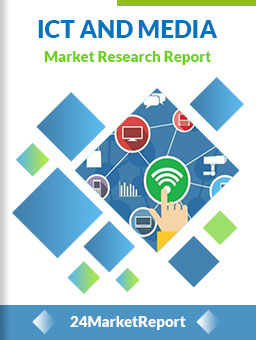
Download FREE Report Sample
Download Free sampleMARKET INSIGHTS
Global integrated POS terminal market size was valued at USD 9,562 million in 2024. The market is projected to grow from USD 10,750 million in 2025 to USD 18,680 million by 2032, exhibiting a CAGR of 10.3% during the forecast period.
An integrated point-of-sale (POS) terminal is a sophisticated electronic device designed to streamline retail transactions by processing card payments, managing inventory, and generating sales reports. These all-in-one systems combine hardware components like touchscreens, card readers, and receipt printers with advanced software solutions for comprehensive retail management. The market primarily segments into single-screen and dual-screen configurations, catering to diverse business needs across supermarkets, food service outlets, and convenience stores.
The market growth is being driven by several key factors, including the global shift toward cashless transactions and the increasing adoption of cloud-based POS solutions. While North America currently dominates market share, Asia-Pacific is emerging as the fastest-growing region due to rapid retail digitalization in countries like China and India. Major players such as Toshiba, NCR, and Diebold Nixdorf continue to innovate, with recent developments focusing on AI-powered analytics and mobile payment integrations to enhance the retail experience.
Rapid Digital Transformation in Retail to Accelerate POS Adoption
The retail sector's ongoing digital transformation represents a powerful catalyst for integrated POS terminal growth. As businesses shift from legacy systems to cloud-based solutions, demand for advanced payment processing with inventory management, CRM, and analytics capabilities has surged. This trend increased global POS terminal shipments by over 12% year-over-year in recent quarters. Modern systems now support omnichannel retailing through unified commerce platforms, where integrated POS terminals serve as the central hub connecting online and offline sales channels. Leading retailers adopting these solutions report 25-30% improvements in operational efficiency, demonstrating the tangible business value driving adoption.
Contactless Payment Mandates to Fuel Infrastructure Upgrades
To know more about market statistics, Download a FREE Sample copy
Global initiatives promoting cashless economies and contactless payment thresholds have created urgent demand for POS terminal modernization. Following the pandemic, over 60 countries increased their contactless transaction limits, with some nations mandating terminal upgrades to support tap-to-pay functionality. This regulatory push aligns with consumer preference - contactless transactions now represent more than 50% of face-to-face payments in developed markets. Payment networks report that merchants upgrading terminals see 18-22% faster transaction times and 15% higher customer satisfaction scores, creating strong financial incentives for POS system replacements. The transition to EMV 3.0 security standards further accelerates this refresh cycle.
High Implementation Costs to Limit SMB Adoption
While enterprise retailers rapidly adopt integrated POS systems, small and medium businesses face significant cost barriers. A full POS system implementation can range from $1,000-$7,000 per terminal when including hardware, software licenses, and installation - a prohibitive investment for many independents. Though SaaS models have reduced upfront costs, ongoing subscription fees averaging $50-$150 monthly per terminal still strain tight margins. Surveys show nearly 40% of SMBs delay POS upgrades due to budget constraints, opting to maintain legacy systems despite operational inefficiencies. This creates a bifurcated market where technology adoption lags significantly in the fragmented SMB segment.
Security Vulnerabilities to Increase Merchant Liability
Integrated POS systems face growing cybersecurity threats as they handle sensitive payment data while connecting to multiple business applications. Recent analyses show POS malware attacks increased by 32% year-over-year, with the average breach costing merchants over $200,000 in remediation and fines. The PCI Security Standards Council continually updates compliance requirements, forcing merchants to invest in frequent security patches and hardware refreshes. Small retailers particularly struggle with these requirements - compliance audits show nearly 60% fail to meet basic PCI DSS standards, exposing them to data breaches and financial penalties that undermine POS investment returns.
Embedded Finance Capabilities to Expand POS Value Proposition
The integration of financial services directly into POS systems represents a transformative growth opportunity. Modern platforms now incorporate merchant cash advances, buy-now-pay-later options, and small business banking features that increase terminal stickiness. Early adopters offering these embedded finance solutions report 25-40% higher customer lifetime values and 30% reductions in payment processing costs through optimized routing. As open banking APIs mature, POS providers can leverage transaction data to offer hyper-personalized financial products - a capability expected to become standard in next-generation systems. This evolution positions integrated terminals as comprehensive business management platforms rather than simple payment devices.
Single Screen Segment Dominates the Market Due to Cost-Effectiveness and Compact Design
The market is segmented based on type into:
Single Screen
Dual Screen
Mobile POS
Subtypes: Handheld, Tablet-based, and others
Self-service Kiosks
Others
Supermarket Segment Leads Due to High Adoption of Digital Payment Solutions
The market is segmented based on application into:
Supermarket
Food Service
Convenience Store
Retail
Subtypes: Department stores, Specialty stores, and others
Hospitality
Others
Cloud-based POS Gains Traction Due to Flexibility and Remote Management Capabilities
The market is segmented based on technology into:
Traditional POS
Cloud-based POS
Hybrid POS
Hardware Segment Maintains Strong Position Due to Essential Infrastructure Requirements
The market is segmented based on component into:
Hardware
Subtypes: Terminals, Display screens, Printers, and others
Software
Services
Subtypes: Installation, Maintenance, and others
Technology and Innovation Drive Market Leadership in POS Terminal Space
The global integrated POS terminal market features a diverse competitive landscape, blending established multinational corporations with agile regional players. Toshiba and NCR Corporation currently dominate the market, leveraging their extensive product portfolios and robust distribution networks across North America and Europe. Both companies have consistently invested in cloud-based POS solutions and contactless payment technologies, anticipating the shift towards digital transactions.
Diebold Nixdorf maintains strong positioning through its specialization in retail banking and commercial POS systems, while HP has gained traction with its Android-based touchscreen terminals. These market leaders collectively held approximately 42% revenue share in FY2023, according to industry estimates, though exact figures vary by region.
Asian manufacturers like Fujitsu and Shiji Information Technology are emerging as significant competitors, particularly in cost-sensitive markets. Their ability to deliver competitively priced hardware equipped with localized software solutions has enabled rapid adoption across Southeast Asia and India. Meanwhile, specialized players such as FLYTECH TECHNOLOGY focus on niche verticals like food service, offering tailored solutions with order management integrations.
The competitive intensity continues rising as POS terminals evolve beyond payment processing into full retail management systems. Leading companies are differentiating through:
Recent strategic movements include Fujitsu's 2023 partnership with European payment processors and NCR's acquisition of a cloud POS software provider. These developments signal the industry's transition toward subscription-based service models, where hardware becomes part of comprehensive retail ecosystems rather than standalone products.
The rapid adoption of contactless payment methods is transforming the integrated POS terminal market globally. With over 60% of consumers now preferring tap-to-pay transactions for safety and convenience, retailers are upgrading their systems to accommodate NFC-enabled payments. This shift is particularly evident in food service and retail sectors, where speed of transaction directly impacts customer satisfaction. The growth in mobile wallet usage (projected to surpass 4.4 billion users by 2025) further accelerates this trend, requiring POS systems with advanced contactless capabilities and multi-payment integration.
Omnichannel Retail Integration
Modern POS systems are evolving beyond transaction processing to become central hubs for omnichannel retail operations. Approximately 45% of retailers now prioritize POS systems that integrate inventory management, CRM, and e-commerce platforms. This demand stems from the need for real-time synchronization between physical and digital sales channels - a capability that reduces operational friction and enhances customer experience. Recent technological advancements in cloud-based POS solutions enable seamless data sharing across multiple locations, driving adoption among chain retailers and franchise businesses.
The incorporation of artificial intelligence into POS terminals is revolutionizing retail analytics and customer engagement. Advanced systems now leverage machine learning algorithms to analyze buying patterns, optimize inventory levels, and personalize customer promotions at the point of sale. These smart terminals can process over 10,000 transactions per minute while simultaneously generating actionable business insights. The growing emphasis on data-driven decision making in retail has made AI-powered POS systems particularly valuable for supermarkets and convenience stores seeking competitive advantages through predictive analytics.
North America
North America dominates the Integrated POS Terminal Market, driven by the high adoption of digital payment solutions and strong retail sector growth in the U.S. and Canada. The region benefits from technological advancements, with businesses increasingly shifting toward cloud-based POS systems to streamline operations. The U.S., accounting for the largest market share, is witnessing rapid adoption in food service and supermarket chains. However, higher implementation costs and regulatory compliance (e.g., PCI-DSS standards) pose challenges for smaller retailers. Key players like NCR and Diebold Nixdorf continue to innovate with AI-driven and contactless payment-enabled terminals.
Europe
Europe's POS market is shaped by strict data security laws (GDPR) and a growing emphasis on cashless transactions, especially in Germany and the U.K. The region has a mature retail sector, with high demand for dual-screen POS terminals in hospitality and supermarkets. EU-wide initiatives promoting small business digitization further boost adoption. Despite this, fragmented regulations across member states create complexity for vendors. Germany leads in POS innovation, while Southern Europe lags slightly due to economic constraints. Toshiba and Fujitsu remain dominant, focusing on scalable, secure solutions.
Asia-Pacific
The fastest-growing region for POS terminals, Asia-Pacific is driven by China's booming retail sector and India's push for digital payments (e.g., UPI adoption). Rising urbanization and small retail store digitization fuel demand for affordable single-screen POS systems. However, price sensitivity and lack of standardization slow the shift to advanced terminals in emerging markets. China dominates with local players like Shiji Information Technology, while Japan and South Korea prioritize high-tech solutions. The region also sees increasing integration of mobile POS (mPOS) in food service and convenience stores.
South America
South America's POS market is expanding moderately, led by Brazil and Argentina, where retail modernization and contactless payment trends are gaining traction. However, economic instability and limited digital infrastructure in rural areas restrict growth. Brazil remains the largest market, with supermarkets and fast-food chains driving demand. Cost-effective solutions prevail due to lower purchasing power, though fintech partnerships are gradually introducing mobile payment-enabled terminals in urban centers. The market remains highly competitive among local and global vendors.
Middle East & Africa
The MEA region shows nascent but promising growth, with UAE, Saudi Arabia, and Turkey leading POS adoption in retail and hospitality. Government initiatives promoting cashless economies (e.g., Saudi Vision 2030) are key drivers. High tourism inflows further push demand for multilingual and contactless terminals. However, low POS penetration in Africa (excluding South Africa) due to informal retail sectors and limited banking access remains a hurdle. The market leans toward all-in-one POS systems, with vendors like Elo Touch and PAX Technology gaining traction.
This market research report offers a holistic overview of global and regional markets for the forecast period 2025–2032. It presents accurate and actionable insights based on a blend of primary and secondary research.
✅ Market Overview
Global and regional market size (historical & forecast)
Growth trends and value/volume projections
✅ Segmentation Analysis
By product type or category
By application or usage area
By end-user industry
By distribution channel (if applicable)
✅ Regional Insights
North America, Europe, Asia-Pacific, Latin America, Middle East & Africa
Country-level data for key markets
✅ Competitive Landscape
Company profiles and market share analysis
Key strategies: M&A, partnerships, expansions
Product portfolio and pricing strategies
✅ Technology & Innovation
Emerging technologies and R&D trends
Automation, digitalization, sustainability initiatives
Impact of AI, IoT, or other disruptors (where applicable)
✅ Market Dynamics
Key drivers supporting market growth
Restraints and potential risk factors
Supply chain trends and challenges
✅ Opportunities & Recommendations
High-growth segments
Investment hotspots
Strategic suggestions for stakeholders
✅ Stakeholder Insights
Target audience includes manufacturers, suppliers, distributors, investors, regulators, and policymakers
-> Key players include Toshiba, NCR, Diebold Nixdorf, HP, POSIFLEX, FLYTECH TECHNOLOGY, Fujitsu, NEC, and Elo Touch, among others.
-> Key growth drivers include digital payment adoption, retail automation trends, and demand for contactless solutions post-pandemic.
-> Asia-Pacific is the fastest-growing region, while North America holds the largest market share currently.
-> Emerging trends include cloud-based POS systems, mobile POS integration, and AI-powered analytics in terminals.

Speak to our Custom Research Team and get the Custom Research in a budget
Custom ResearchFrequently Asked Questions ?
A license granted to one user. Rules or conditions might be applied for e.g. the use of electric files (PDFs) or printings, depending on product.
A license granted to multiple users.
A license granted to a single business site/establishment.
A license granted to all employees within organisation access to the product.
Upto Working 24 to 48 hrs
Upto 72 hrs max - Weekends and Public Holidays
Online Payments with PayPal and CCavenue
Wire Transfer/Bank Transfer
Hard Copy



 Industry Market Size
Industry Market Size SWOT Analysis
SWOT Analysis Industry Major Players
Industry Major Players Revenue Forecasts
Revenue Forecasts Historical and Forecast Growth
Historical and Forecast Growth Profitability Analysis
Profitability Analysis
























